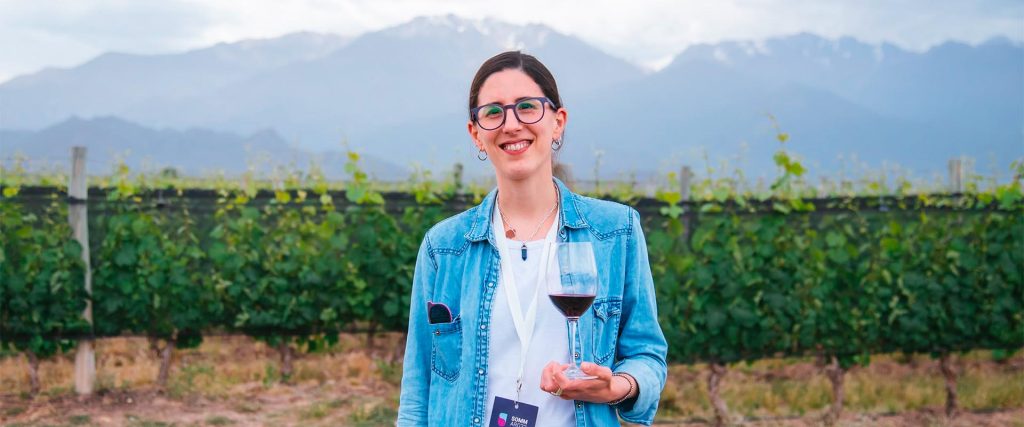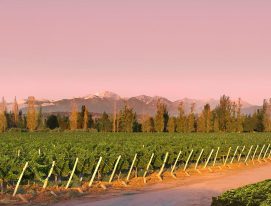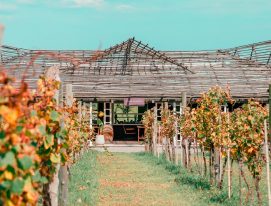In November 2022, the Argentine Association of Sommeliers held the 9th edition of their competition to find the Best Sommelier in Argentina. With a record number of entrants, the winner was Andrea Donadio, who along with Valeria Gamper – 2019’s winner who was also named the Best Sommelier of the Americas in 2022 – will represent Argentina at the Concours ASI du Meilleur Sommelier du Monde 2023, which will be held in February in France.
Andrea Donadio has led an extensive career as a professional sommelier: in 2011 she received her degree from the Argentine Center of Wines and Spirits (CAVE), where she now teaches and later was named a Certified Sommelier de la Court of Master Sommeliers. She is currently the co-founder of Tinte Vinos an online wine store and gastronomic consultancy service.
A finalist in the 2019 edition for Best Sommelier in Argentina, Andrea Donadio has spent ten years working at different prestigious restaurants in Buenos Aires and Europe (she did internships with Martín Berasategui in the Basque Country, and Michel et Sébastien Bras in France).
In the middle of her intensive training for the World Championship, Andrea Donadio shares her thoughts about being a sommelier in Argentina, the importance of women in the profession, forming mutual support networks, the close relationship between sommeliers and other actors in the wine industry, the excellent training on offer and the significance of working in different cities around the globe so as to spread the word about Argentine wine.
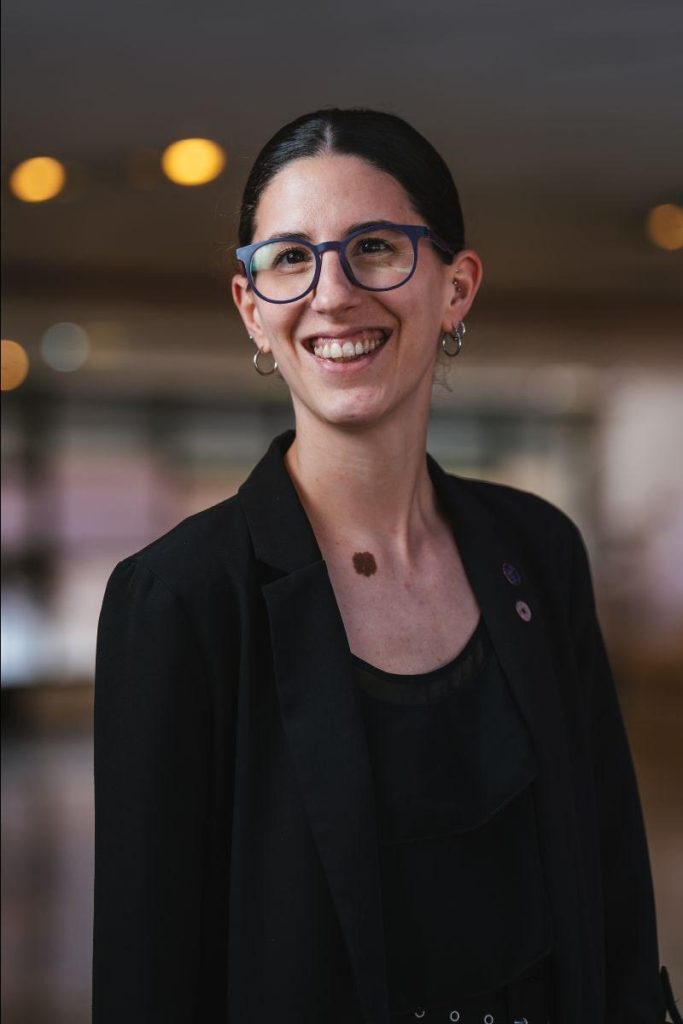
Interview with Andrea Donadio
In Argentina there is a very close relationship between sommeliers, winemakers and wineries, how do these professions interact in practice?
Because Argentina is a producer country, sommeliers have the advantage of having producers close by and the opportunity to experience wine culture up close. In recent years, the relationship has grown more professional and this helps us to raise the level of expertise through what wineries share with us, which is a big bonus. We might not be going around telling everyone about the minutiae of different soil types, but it is still very valuable information that improves our professionalism and allows us to deliver the best possible experience with every bottle.
You’ve been taking part in major competitions for years, what motivates you to keep going?
The Best Sommelier in Argentina event was my fourth time competing (2014, 2017, 2019 and 2022) and what motivates me the most is how it forces me to get organized. You need to process a lot of different information: geography, oenology and a lot more, but it all helps you to a better understanding of wine and to interpret many things. I also enjoy the experience in general, seeing colleagues, meeting new people, studying in different ways and sharing experiences.
How does the world regard sommellerie in Argentina?
A little while ago, I took part in a boot camp run by the Association de la Sommellerie Internationale in Malaysia with a number of professionals from different countries and I found that they know quite a lot about us. A lot of people asked about Paz Levinson, for example, and expressed their admiration. They know that the academic quality in Argentina is very high and are familiar with a lot of our wines, especially Malbec.
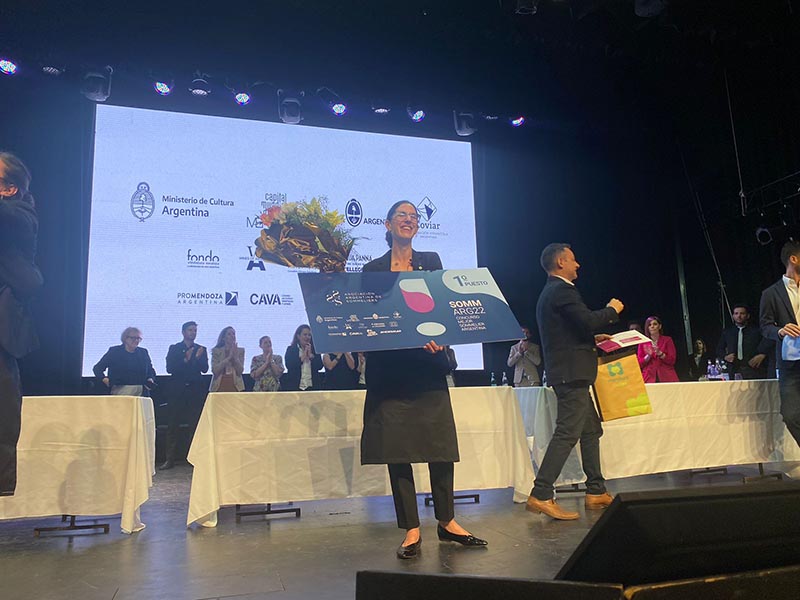
What opportunities are there for Argentine wine in restaurants in other countries?
More and more Argentine labels are receiving high scores and Argentine wineries are winning more awards and honors every year. Until a few years ago, there wasn’t much Argentine wine available on international menus but that’s changed greatly. Of course, this is related to the fame of Malbec, there’s always at least one or two on wine lists these days. I think that we still need to promote and share the diversity the country has to offer, with more varieties and places of origin.
What are the most important messages that still need to be conveyed?
I think we still need to tell the story of Argentina’s vast geographic diversity, which isn’t just limited to the Andes but also includes other regions, for instance those closer to the sea.
As regards the varieties, of course we still need to keep talking about Malbec but expand the vision to include the latest trends and the valuable human and professional capital of our viticulture.
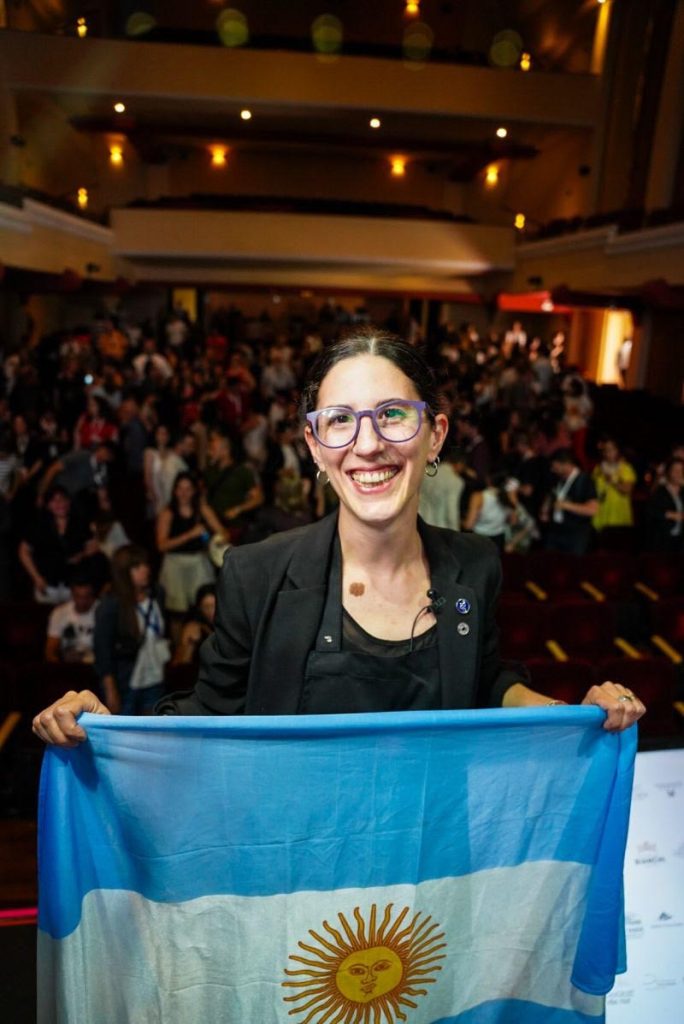
Argentina has a number of notable women sommeliers, is this true of other countries?
Sommellerie is a very new profession in Argentina, it’s only been around for about 20 years at the most, led by Marina Beltrame, Flavio Rizzuto and María Barrutia. From the start it has attracted many women. In other countries perhaps people tend to think of sommeliers as being men but here there’s no prejudice in that regard.
I hope that other countries evolve because it’s not that women are naturally sensitive, making them better sommeliers. All our leading professionals got where they are today thanks to their effort, dedication, studiousness, determination to keep going and the mutual support that is always available from colleagues.

